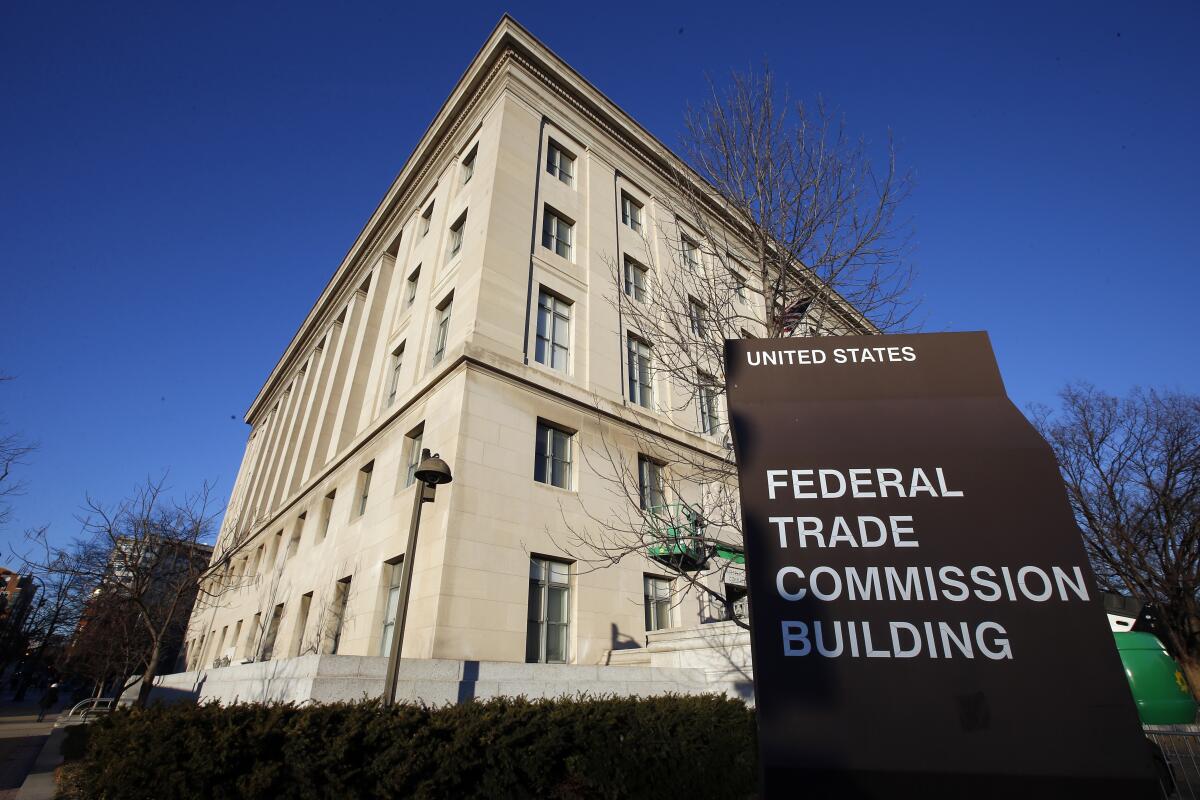Misleading political TV ads are filling up California’s ‘news deserts’

- Share via
If you watched even a smidge of the Dodgers-Padres postseason playoff games on television, you almost certainly saw a political ad. This is nothing unusual for the lead-up to an election. In fact, there are fewer propositions on the ballot than usual in California — but that doesn’t make figuring out how to vote any less confusing. This year, for instance, there are two different propositions to expand gambling on the table.
Political advertising has already reached record spending levels this year. But what’s even more troubling than the amounts of money spent is that information disorder and political polarization make it harder than ever to discern facts from baseless claims or misinformation.
It’s quite possible that some Californians will only get their information about the ballot measures and the candidates up for election from TV ads. And strong local news operations that could offer a counterweight to misleading ads are disappearing from many communities in this state and around the country.
That’s why it is crucial that state and federal political advertising regulations be updated to account for the loss of access to information, even as political operatives become more adept at honing misinformation tactics.
Meaningful participation in a democracy depends on informed citizens, but many voters can’t get the kind of news and information that would enable them to do so. Since 2004, California has lost 24% of its newspapers — and 14 California counties are essentially news deserts: places that have no local news or are severely under-resourced for local news.
At present, all that current state law generally requires is a disclosure between two and eight seconds long about who paid for the TV or radio ad. If it’s an advocacy group with an innocuous-sounding name (for instance, Citizens for Sanity, which was behind an anti-immigrant ad during a Dodgers-Padres game), such disclosures won’t tell you much.
Television ads may be particularly problematic because people trust local news more than any other type of journalism and most Americans still get most of their local news from local TV stations. Viewers might mistakenly believe that their local network news has fact-checked the ads or that the local 6 o’clock news has approved the advertisements — giving political misinformation a veneer of legitimacy.
This makes it even more important for voters to have a clear idea of who is behind the ads they’re seeing. More detailed disclosures could help voters better understand the organizations paying for the ads and their motivations. Ideally, the same kind of truth-in-advertising requirements for pharmaceutical drugs might one day be applied to political ads, too.
There are changes that state and federal regulatory agencies could make to move in this direction.
Currently, all that the Federal Elections Commission requires for television ads funded by political action committees is what it calls a “disclaimer” with “the name of the political committee, corporation, labor organization, individual or group who paid for the communication.” But it could also require that the sources of the text, images or footage used in the ad be made available to the public.
Knowing who is behind a PAC is critical, especially in a post-Citizens United world, where huge amounts of money deluge campaign seasons from undisclosed sources. Tracing donors is outside the ability of the ordinary citizen, so even requiring a link to a PAC’s website would be more than what voters have now.
Election laws are hard to change and extremely complicated. But voters are also consumers, and there may be ways for the Federal Trade Commission to act. The FTC’s job is to protect consumers under the federal law, which says that “claims in advertisements must be truthful, cannot be deceptive or unfair, and must be evidence-based.” If the FEC can’t adjust its regulations, perhaps there’s room for the FTC to step in.
In July 2021, after yet another election cycle set spending records, California’s Fair Political Practices Commission recommended creating a database of political ads, but such a database has not yet been set up.
This database requirement could be a way in for the Federal Communications Commission, which oversees the public airwaves. The FCC could require broadcasters to air a brief message before any political ad to say that the information hasn’t been verified by the network — like the health warnings that appear on tobacco and alcohol products. Short of federal action, California regulators and lawmakers should consider how to make similar state level changes.
Rethinking political advertising matters to the future of elections. Democracy depends on the public making informed decisions. Misinformation, driven by polarization, flooding the airwaves will only get worse without reforms that give voters a fighting chance.
Nikki Usher is an associate professor in communication studies at the University of San Diego.
More to Read
A cure for the common opinion
Get thought-provoking perspectives with our weekly newsletter.
You may occasionally receive promotional content from the Los Angeles Times.









